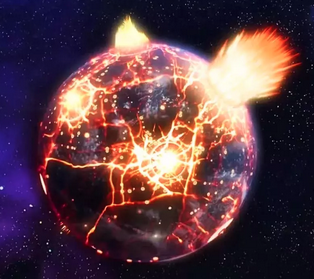Although the linked study examined attitudes of those 16 to 25 years of age, there are many outside that range (myself included) who experience extreme pessimism about the future of human existence.
What experiences led you to your own conclusions about the fate of humanity? Do those conclusions affect your everyday decisions? How does your acceptance of imminent calamity shape your long term goals?
I’ll start. I was but a child in the 1960’s (Boomer II), born into a family deeply involved in charismatic Christianity. Fear surrounding the predicted events of a highly anticipated second coming of Christ (The Rapture, Tribulation, etc.) combined with the exaggerated cultural threat of communist aggression and the certainty of thermonuclear destruction created a perfect storm of personal despair and dread by the time I was 9 years old. As the fundamentalist Christian culture edged toward prosperity gospel and Seven Mountains, my mind turned towards nihilistic and scientific literature.
By my teenage years, I was solidly convinced that nothing short of a miracle could save humanity prior to my 30th birthday. Yet, here we are. The angst of my childhood absolutely shaped the trajectory of my life. Secondary education seemed a senseless enough endeavor to ignore. I considered reproduction to be a cruel endeavor. I embraced agnosticism, punk culture and anarchism.
The privileged existence of being white, privileged and cis male has served me well, and I can’t say that I’m unhappy. I find succor in the growing probability that a natural death will spare me the majority of horrors to come. And I am sad and angry for what subsequent generations are about to experience.
What’s your story?


Yes, India’s functioning bar is at the top, yet their worry seems inappropriately low. Filipinos seem to be appropriately worried.